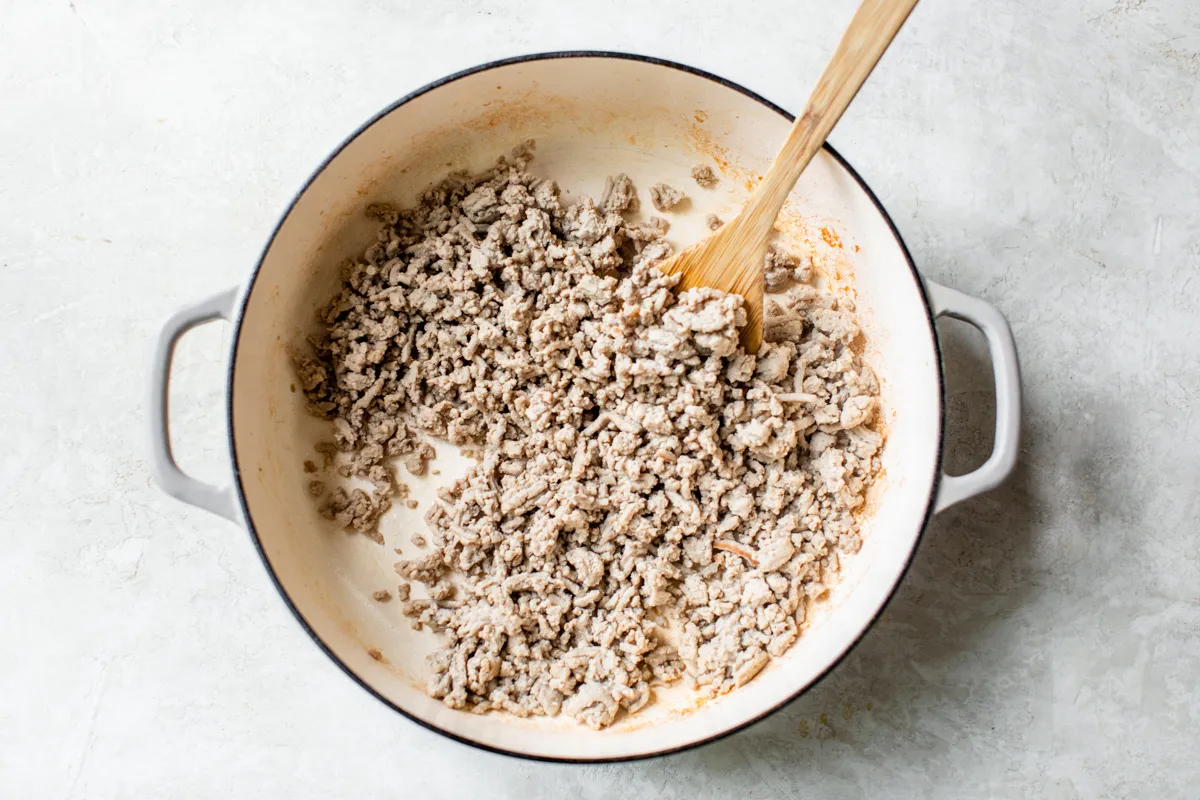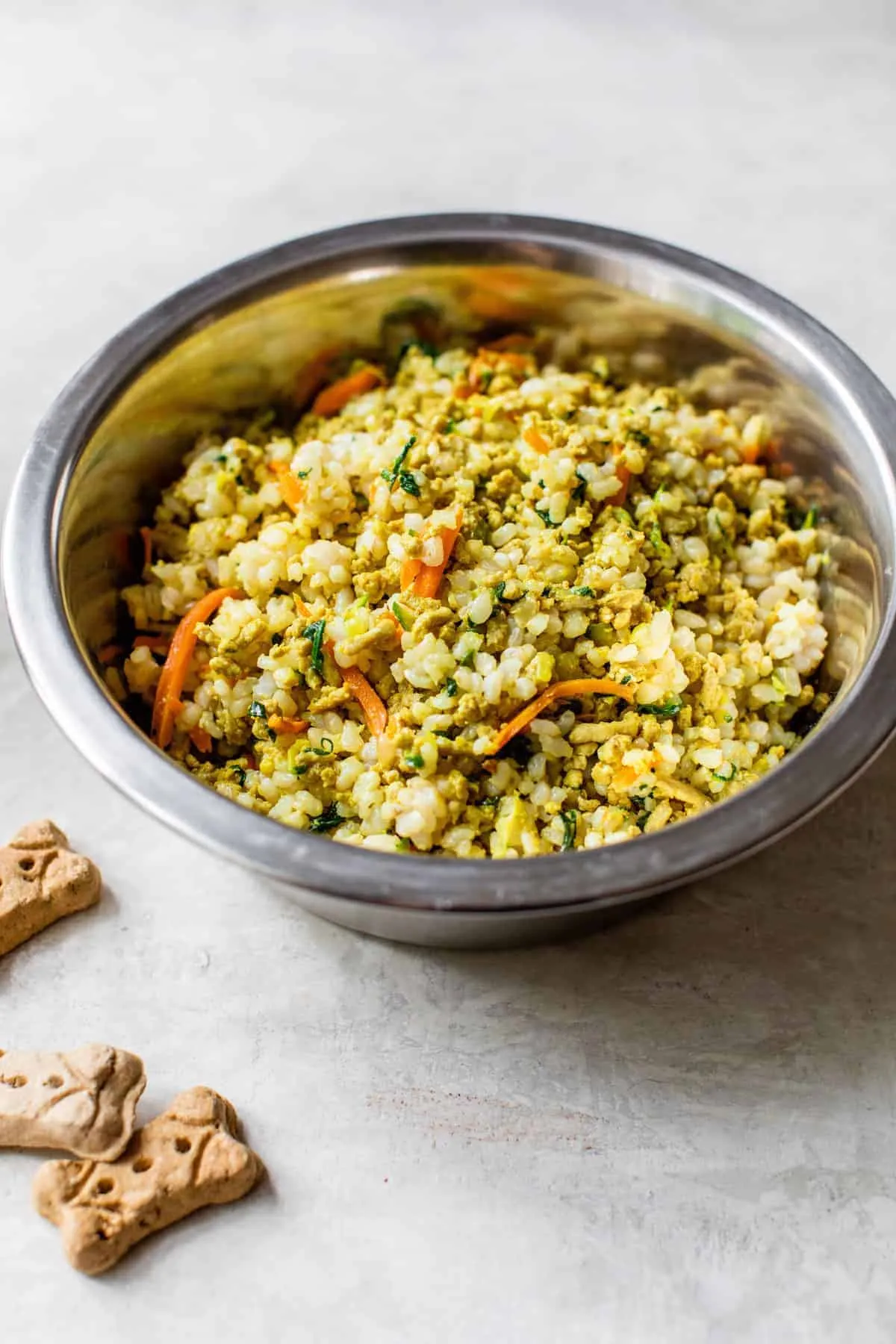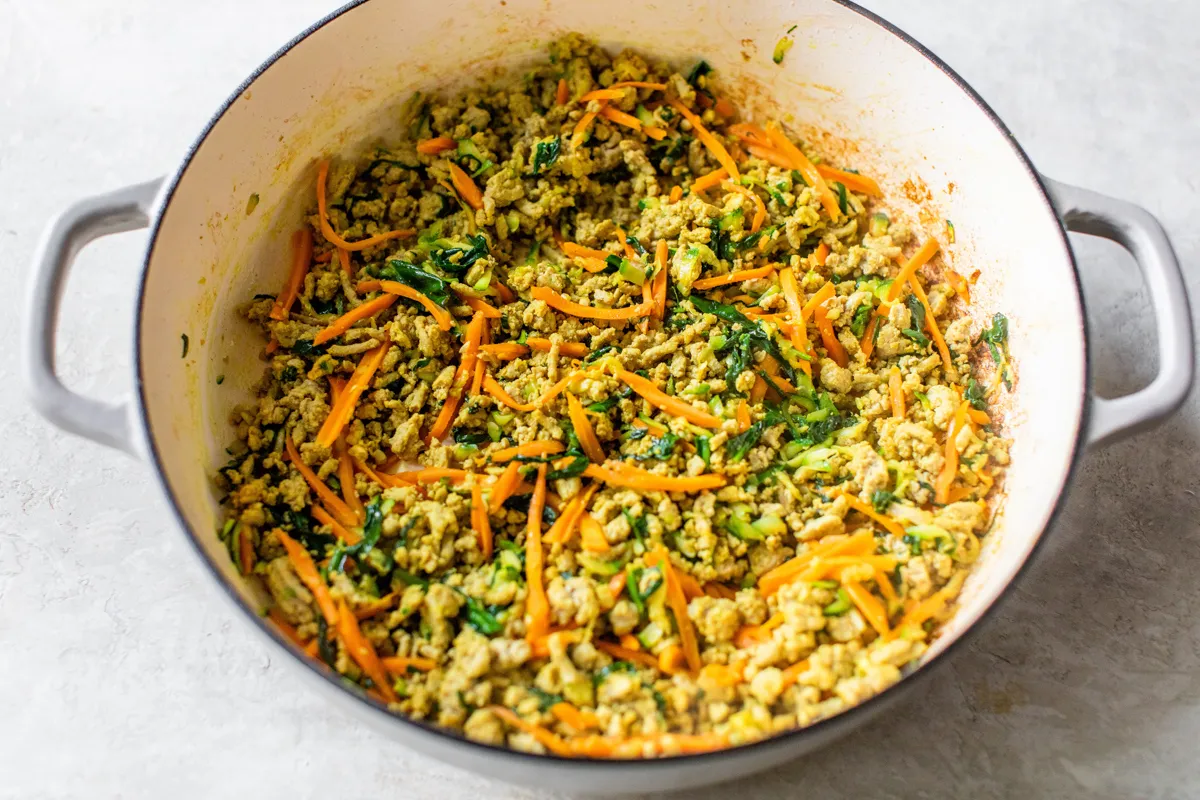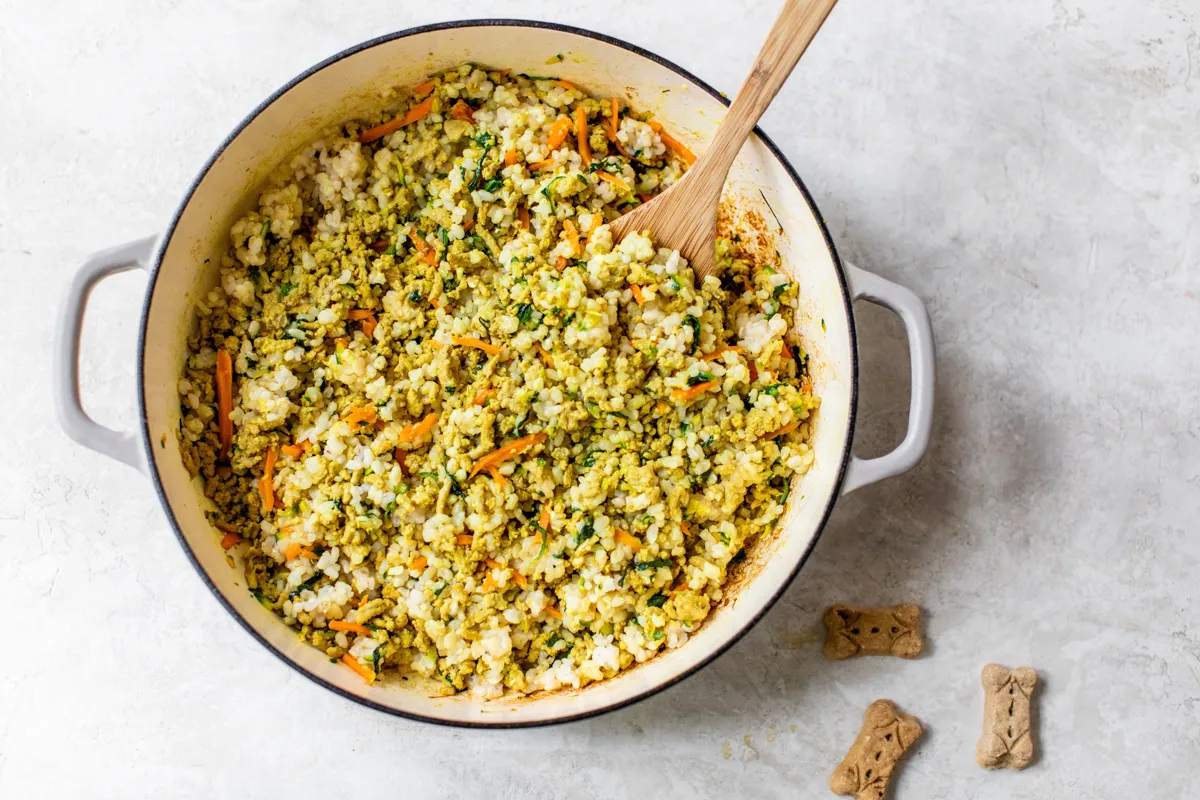Welcoming a small breed puppy into your home is an exciting journey, filled with endless cuddles and playful antics. Just like human infants, these tiny pups have unique nutritional needs that are crucial for their rapid growth and development. Providing them with the right diet sets the foundation for a healthy, happy life. While commercial puppy foods offer convenience, crafting Homemade Puppy Food Small Breed Recipes allows you to control every ingredient, ensuring your little one gets the finest, most wholesome nutrients without unwanted additives. This guide will walk you through creating a simple, balanced, and delicious meal tailored for your small breed puppy.
Feeding a 6-week-old puppy, especially a small breed, requires particular attention to ensure they receive adequate nutrition. homemade food for 6 week old puppy It’s important to remember that every puppy is an individual, and their dietary requirements can vary based on age, activity level, and specific health conditions. Always consult with your veterinarian before making any significant changes to your puppy’s diet, as they can provide personalized advice to ensure your furry friend thrives.
Why Homemade Food is Great for Small Breed Puppies
Opting for homemade food offers numerous advantages, particularly for small breed puppies. Their delicate systems often benefit from easily digestible ingredients and carefully portioned meals. When you prepare their food from scratch, you gain complete control over the quality and source of ingredients, avoiding artificial preservatives, colors, and fillers commonly found in some commercial foods. This can be especially beneficial for puppies with sensitive stomachs or allergies.
Homemade meals can also be a godsend for picky eaters, common among small breeds. By preparing fresh, flavorful dishes, you can entice even the most discerning palate, ensuring they consume the necessary nutrients for robust growth. The ability to tailor recipes means you can adjust textures and ingredients to suit your puppy’s preferences and any specific health needs, fostering a stronger immune system and promoting healthy skin and a shiny coat.
Key Ingredients for Your Small Breed Puppy’s Meal
When designing homemade puppy food small breed recipes, the focus is on lean protein, easily digestible carbohydrates, nutrient-dense vegetables, and healthy fats. These components provide the energy and building blocks vital for their rapid growth phases. Here’s a look at the star ingredients for our recipe:
- Lean Ground Turkey or Chicken: Both are excellent sources of high-quality, easily digestible protein, essential for muscle development and overall growth. Opt for lean cuts to avoid excessive fat, which can upset a puppy’s stomach.
- Cooked Rice (Brown or White): Rice is a gentle carbohydrate source, providing sustained energy without overwhelming a puppy’s digestive system. Brown rice offers more fiber, while white rice is even easier to digest, which might be preferable for very young puppies or those with sensitive tummies.
- Nutrient-Rich Vegetables: Finely chopped or pureed zucchini, spinach, and carrots are packed with vitamins, minerals, and fiber. These contribute to a healthy immune system and good digestion. Always ensure vegetables are cooked and mashed to prevent choking hazards and aid absorption.
- Egg: A fantastic nutritional booster, eggs are highly digestible and rich in vitamins D and B12, supporting bone health and neurological development. They are also a great source of additional protein.
- Coconut Oil: This healthy fat provides easily metabolized energy and can support skin, coat, and cognitive function. It also adds a subtle, appealing flavor that many dogs enjoy.
- Turmeric (Optional, very small pinch): Known for its natural anti-inflammatory properties, curcumin in turmeric may offer benefits for joint health and the immune system. However, for small breed puppies, only a tiny pinch is recommended, and always discuss its use with your vet first.
Always ensure you are choosing dog-safe options for your puppy. For example, some human foods are toxic to dogs. Understanding what can Pomeranians eat that is human food can give you a better idea of safe choices for your tiny companion.
Crafting Your Homemade Puppy Food: A Simple Recipe
Making this nutritious meal for your small breed puppy is surprisingly simple and takes just about 30 minutes on your stovetop. The key is thorough cooking and ensuring all ingredients are finely prepared to be easily consumed and digested by small mouths and delicate digestive systems.
 Browning lean ground turkey in a pot for a homemade puppy food recipe.
Browning lean ground turkey in a pot for a homemade puppy food recipe.
Here’s how to prepare this wholesome meal:
Brown the Turkey: Heat one tablespoon of coconut oil in a large skillet or pot over medium-high heat. Add one pound of lean ground turkey and sauté until it is thoroughly browned and cooked through, which usually takes about 10 minutes. Break up any large clumps as it cooks.
Add the Veggies and Spices: Reduce the heat to medium. Stir in one shredded large zucchini, one cup of finely chopped baby spinach, one cup of shredded carrots, and if using, a tiny pinch of turmeric (less than 1/2 teaspoon). Cook, stirring occasionally, for 5-7 minutes, or until the vegetables are tender. For very young or sensitive puppies, you might consider pureeing the cooked vegetables before adding them.
 Adding finely chopped carrots, zucchini, and spinach to the cooked ground turkey in a pot.
Adding finely chopped carrots, zucchini, and spinach to the cooked ground turkey in a pot.Incorporate the Egg: Turn off the heat. Crack one egg directly into the hot food mixture. Stir vigorously to ensure the egg cooks evenly through the residual heat of the food. This creates a soft, digestible protein boost for your puppy.
 Mixing a cooked egg into the warm puppy food mixture for added nutrition.
Mixing a cooked egg into the warm puppy food mixture for added nutrition.Stir in the Rice: Finally, add three cups of cooked rice (brown or white, depending on your puppy’s digestive needs) to the pot. Mix everything thoroughly until all ingredients are well combined.
Cool and Serve: Allow the food to cool completely before serving it to your puppy. This prevents burns and ensures the consistency is ideal.
Serving Guidelines for Growing Small Breed Pups
Determining the exact serving size for your small breed puppy is critical, as their nutritional needs are intense and specific to their rapid growth. Unlike adult dogs, puppies need more calories and nutrients per pound of body weight, and they typically eat several small meals throughout the day to maintain stable blood sugar levels and fuel their development.
Since every small breed puppy is unique, influenced by factors like age, weight, activity level, and metabolism, it is paramount to consult your veterinarian for personalized guidance on portion sizes and feeding frequency. They can help you create a feeding schedule that precisely meets your puppy’s caloric and nutritional demands. While this recipe provides a general template, your vet’s expert advice will ensure your tiny companion receives optimal nourishment. For example, the feeding guidelines for a small breed puppy will differ significantly from those for a homemade food for German Shepherd puppy, which emphasizes larger portion sizes and different growth considerations.
A good at-home indicator is to observe your puppy. They should maintain a healthy weight, possess good energy levels, and eagerly anticipate meal times. Avoid overfeeding, which can lead to obesity and skeletal issues, or underfeeding, which can hinder growth and development.
Storage Tips & Making Ahead
This homemade puppy food recipe yields approximately six cups of food, which can be prepared in advance to save you time during busy weeks. Proper storage is essential to maintain freshness and prevent spoilage.
- Refrigerator: Once the food has cooled completely, transfer it to an airtight container. It can be stored safely in the refrigerator for up to 3 to 5 days.
- Freezer: For longer storage, you can freeze individual portions in freezer-safe containers or bags. Homemade puppy food can be kept in the freezer for up to 2 to 3 months. When ready to use, thaw a portion in the refrigerator overnight before serving. Ensure it is warmed to room temperature or slightly warm before offering it to your puppy.
 A bowl of freshly prepared homemade puppy food, ready for serving.
A bowl of freshly prepared homemade puppy food, ready for serving.
Conclusion
Creating homemade puppy food small breed recipes is a rewarding way to provide your new family member with the best possible start in life. By focusing on wholesome, digestible ingredients and careful preparation, you contribute significantly to their growth, energy, and overall well-being. This simple stovetop recipe offers a fantastic foundation for nourishing your tiny tot with love and nutrition.
Remember, the journey of feeding a puppy is dynamic, and their needs will evolve as they grow. Regular consultations with your veterinarian are crucial to ensure their diet remains perfectly balanced and meets all their developmental milestones. Explore more healthy and fun recipes, like how to make a birthday cake for dogs, on Dog Care Story to keep your furry friend happy and healthy throughout their life!

 Adding finely chopped carrots, zucchini, and spinach to the cooked ground turkey in a pot.
Adding finely chopped carrots, zucchini, and spinach to the cooked ground turkey in a pot. Mixing a cooked egg into the warm puppy food mixture for added nutrition.
Mixing a cooked egg into the warm puppy food mixture for added nutrition.